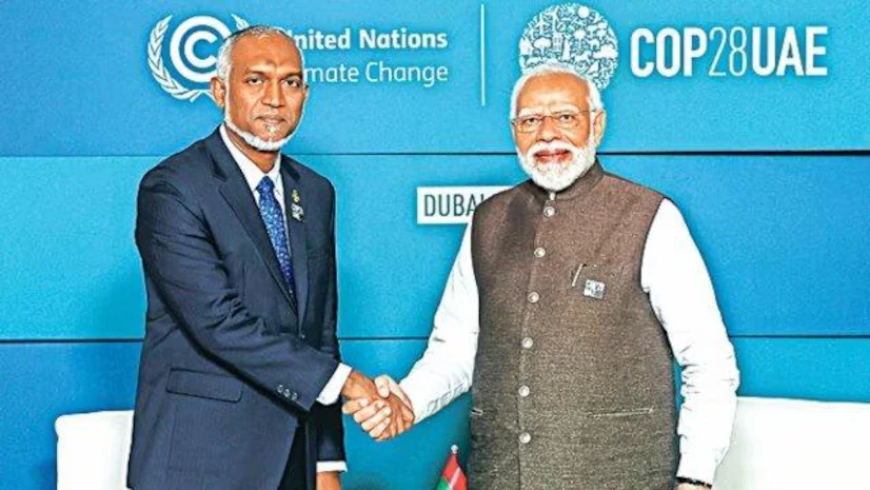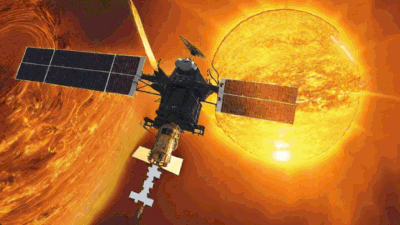Strengthening of Strings of Pearls
A social media dispute over Modi's praise for Lakshadweep has escalated into economic and geopolitical tensions between India and the Maldives. Despite India's historic assistance, the Maldives is now leaning towards China, signing agreements and projects with them. This shift threatens India's influence in the region and signifies a potential debt trap for the Maldives. In response, the Maldivian government seeks to reduce dependency on India, exploring partnerships with other countries. Meanwhile, India focuses on Lakshadweep's development amid growing competition with China.

A controversy that began online has now become a matter of economic concern and geopolitical agenda, resulting in a rocky relationship between India and Maldives. The riot commenced on the 4th of January when Indian Prime Minister Narendra Modi shared a few shots of him praising the beauty of Lakshadweep. Modi was snorkelling and encouraging people to visit Lakshadweep. The post had no mention of Maldives anywhere in it yet 3 Maldivian ministers were quick to pass derogatory comments on the prime minister calling him a clown and contempting the Indian culture. The situation took sloppy turns giving rise to the #boycottmaldives trend on social media.
Maldives is a small country with a population of over 5 lakh citizens. The Maldivian economy is heavily dependent on tourism. More than 28% of its GDP comes from tourism. India and Maldives have shared strategic allies and military cooperation. 1 of 4 tourists in the Maldives is Indian. India has always been one of the first countries to respond to calls for help from Maldives. India was the first country to provide Covid-19 vaccines to Maldives.
Around 2008, India launched its Neighbourhood First Policy, which aimed to strengthen its relationship with its neighbouring countries which Maldives was a special part of. India was also the first to assist the Maldives during the 2004 tsunami in which nearly 100 people were killed. India also gifted Maldives 2 Dhruv advanced light helicopters in 2010 and 2015. In the three coups of 1980,1983 and 1988 India was the first nation to reach out to Maldives. Around 77 Indian military personnel are recruited in Maldives to assist the country during natural calamities, to conduct search and operations, and humanitarian rescue missions, and to maintain the two helicopters. India did all this as a friendly neighbour expecting no returns. But despite all this Maldives is now seen turning its back on India.
Maldives has always been dependent on the others for its growth. But now the assistance provided by India over the years has become a matter of political riot in the country. And many including the Maldivian President Mohamed Muizzu now want India to take a leave from Maldives. President Muizzu’s entire election campaign was based on India Out sentiment. Now the Maldivian government is seen tilting towards China.
China is seen strengthening its string of pearls theory meaning it has started strategically investing in India’s neighbouring countries like Srilanka, Maldives, and Bangladesh by interfering and influencing the countries. Consequently, they want to establish their dominance over these countries and suppress India.
Maldives’ biggest asset is its geographical location, lying in the lowest area of the Indian Ocean. Identifying this China has extended a hand of friendship to Maldives. China and the Maldives upgraded their relationship during Muizzu's first state visit to Beijing by entering into 20 agreements so far. The symbol of their friendship is the Sinamale Bridge built by China in 2018. The Chinese government has also promised tourists grants to Maldives. Maldives is on the step of the Chinese government’s debt trap. The number is expected to be more than 3 billion dollars.
The Maldivian government has asked India to withdraw its troops by the 15th of March to maintain the nation’s sovereignty. They have also begun exploring alternative countries to fulfil their service needs instead of India. For example, Maldivians will now pursue higher education in China. Import sugar, rice, wheat flour, and other such necessities from Turkey and get medical help from countries like UAE and Thailand. This action by the country indicates a complete withdrawal of its dependency on India.
The development of Lakshadweep has always been on the Indian government’s agenda. The Indian government has also introduced a budget of Rs 1,156 crore for the development of Lakshadweep and bringing in new projects like broadband internet, ferry services, and eco-tourism. More than tourism and defamation this has now become a topic of trade and war between India and China.











































